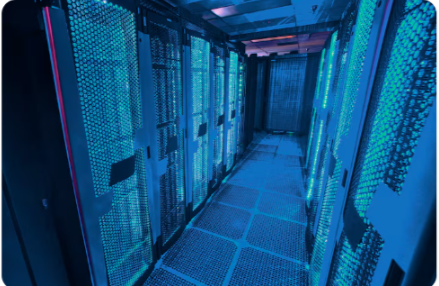In the contemporary business landscape, data is the most valuable asset, and the infrastructure that houses and processes this data is the true engine of growth.
A modern data center is far more than a storage facility; it is a strategic platform that directly enhances business performance, accelerates innovation, and ensures market competitiveness.
By providing an environment engineered for high availability, security, and connectivity, a reliable data center allows companies to operate faster, scale more efficiently, and deliver a superior experience to their customers.
Utilizing professional-grade infrastructure shifts a company’s focus from maintenance to market strategy, making the data center a fundamental enabler of success.
Ensuring Maximum Uptime and Reliability
Downtime is catastrophic in the digital age, leading to lost revenue, diminished customer trust, and operational chaos. One of the most critical roles of a professional data center is to guarantee maximum uptime.
This is achieved through robust infrastructure engineered with multiple layers of redundancy in power (UPS and backup generators), cooling, and network connectivity.
Such resilience ensures that mission-critical applications and services remain available 24/7/365, safeguarding business continuity and providing a stable foundation for all digital operations. This reliability allows businesses to commit to high service level agreements (SLAs) with confidence.
Accelerating Data Processing and Latency Reduction
Speed is a key differentiator in today’s markets, whether for trading platforms, e-commerce transactions, or real-time analytics. A strategically located data center can significantly reduce network latency.
By hosting servers closer to end-users or major internet exchange points, the travel time for data is minimized, resulting in faster application response times and improved user experience.
Furthermore, modern facilities are optimized to handle massive workloads and high-performance computing, directly improving the speed at which a business can process large data sets and gain valuable insights.
Providing Robust Security and Compliance
Protecting sensitive business and customer data is non-negotiable. A dedicated data center offers enterprise-grade security that most organizations cannot afford to implement in-house.
This includes multi-layered physical security—biometric access controls, surveillance, and on-site staff—as well as comprehensive network security protocols.
Beyond physical protection, data centers help businesses meet stringent regulatory requirements (such as GDPR or HIPAA) by providing necessary compliance certifications and audit trails, thereby reducing legal risk and bolstering customer trust.
Supporting Seamless Scalability and Expansion
As a business grows, its IT requirements inevitably balloon. A key benefit of partnering with a professional data center is the ability to scale infrastructure on demand, without the need for heavy capital expenditure on new real estate or construction.
Whether a company needs more rack space, increased power density, or additional network bandwidth, a data center can typically provision these resources quickly.
This flexibility allows businesses to adapt rapidly to market demands, launch new products faster, and enter new geographical regions without being constrained by IT limitations.
Offering Enhanced Connectivity and Ecosystem Access
The connectivity offered by a data center extends far beyond a simple internet connection. These facilities serve as hubs where diverse carriers, cloud providers, and business partners meet.
This rich ecosystem allows companies to establish direct, private, and high-speed connections to necessary services, including major cloud platforms (hybrid cloud strategies), reducing data egress costs and latency.
This interconnected environment fosters collaboration and simplifies complex network architectures, enhancing the overall performance and reach of the business.
